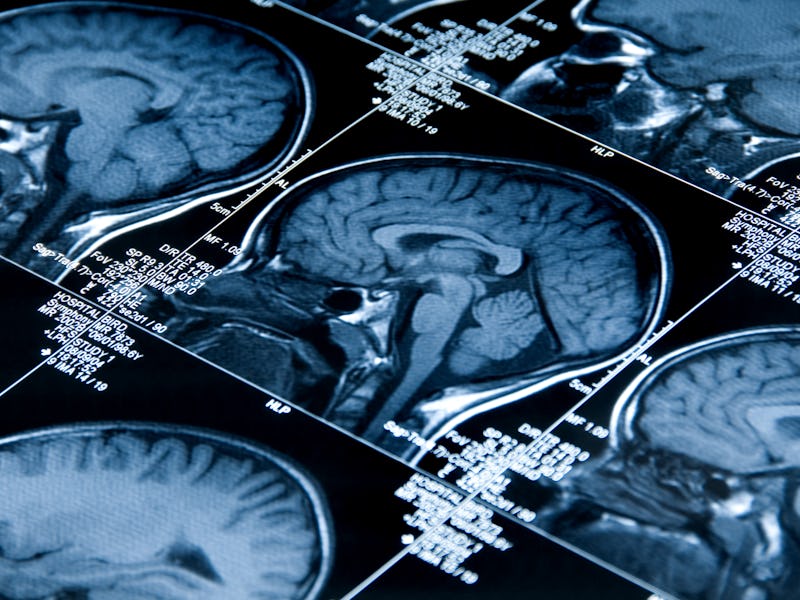The scientific reason why depression and the immune system are connected
“Bringing body and mind together in a more integrated approach to medicine is the future of healthcare.”

After years of studying the genetics of psychiatric conditions, Lea Davis has come to realize that at a biological level, “there is no difference between mental health and physical health.”
She leads a lab at Vanderbilt University dedicated to understanding this mind-body connection. Recently, they were struck by a new idea: What could they learn about depression by studying routine clinical lab tests linked with genetic data?
“This way we could look at what kinds of physiological differences might be present when people have clinical depression,” she tells Inverse. “We could also look at whether those differences were present in people who had a high genetic risk for depression, but who didn’t have clinical depression.”
A polygenetic risk score for depression is associated with having a genetic predisposition for the mood disorder. It can be used as a predictor for depression — but it doesn’t mean a person absolutely will experience clinical depression. Essentially, everyone has some level of genetic risk for depression, Davis explains: “It’s a continuum and we’re all on it.”
In a study published in October by Davis and colleagues in the journal JAMA Psychiatry, they establish an association between depression polygenic scores and increased white blood cell count. White blood cells are a part of the immune system and in turn, the paper argues for the “potential importance of the immune system in the etiology of depression.”
The team found that in people who have clinical depression, depression can explain increases in white blood cell count. Davis says this likely supports a “feedback model” — inflammation increases the risk for depression, and depression also increases or maintains inflammation.
Depression and the immune system
Previous research also links depression, inflammation, and immune markers like white blood cell count. But in this case, “it was surprising to see that the immune markers were pretty much the only ones — out of the ones we tested — that showed a robust association with genetic risk for depression,” Davis explains.
The data set included 382,452 participants of European ancestry and 12,383 participants of African ancestry.
Historically, Davis explains, “it’s been hard to establish whether inflammation is due to depression, depression is due to inflammation, or they’re both due to something else.”
An image of an elevated number of white blood cells.
In this study, they found elevated levels of inflammatory markers in people without clinical depression but with a high genetic risk for depression. This supports the hypothesis that inflammation is a risk factor for depression overall, Davis explains, but it’s important to understand that the average white blood cell count for those with a high genetic risk was still within the “normal” range.
“Our interpretation here is that genetic risk for depression may be leading to an activated, but not abnormal, immune response,” Davis says. “This fits very well with some existing hypotheses about the role of low levels of chronic neuroinflammation in depression.”
She hopes this study motivates further research on this link between neuroinflammation and depression, and eventually spurs new treatment through anti-inflammatory mechanisms.
The future of depression therapy
A deepening scientific understanding of the relationship between mental health and the immune system is growing at a steady clip.
“Bringing mind and body together... is the future of healthcare.”
For example: Early research suggests the antidepressant fluvoxamine can help Covid-19 patients because of its anti-inflammatory effects. While this JAMA Psychiatry study doesn't probe the anti-inflammatory effects of antidepressants directly, it does suggest inflammation “may be one possible mechanism through which antidepressants are working to treat depression,” Davis says.
In other words, we’re gaining a better sense as to why some anti-inflammatory antidepressants combat depression and why some antidepressants can help treat inflammatory diseases.
Davis also sees how her study could motivate future research on anti-inflammatory foods as a way to ease depression. Some scientists believe diet can reduce symptoms of depression and anxiety, possibly because of nutrients that decrease neuroinflammation, though Davis says “the jury is still out on the role of specific anti-inflammatory foods.”
Ultimately, she explains, there is never going to be “one silver bullet treatment” for depression. It’s increasingly evident that a combination of treatments can help; she references evidence supporting exercise, meditation, therapy, and medication as a multi-pronged approach.
“Bringing body and mind together in a more integrated approach to medicine is the future of healthcare,” she says. “I hope this study adds some fuel to that fire.”